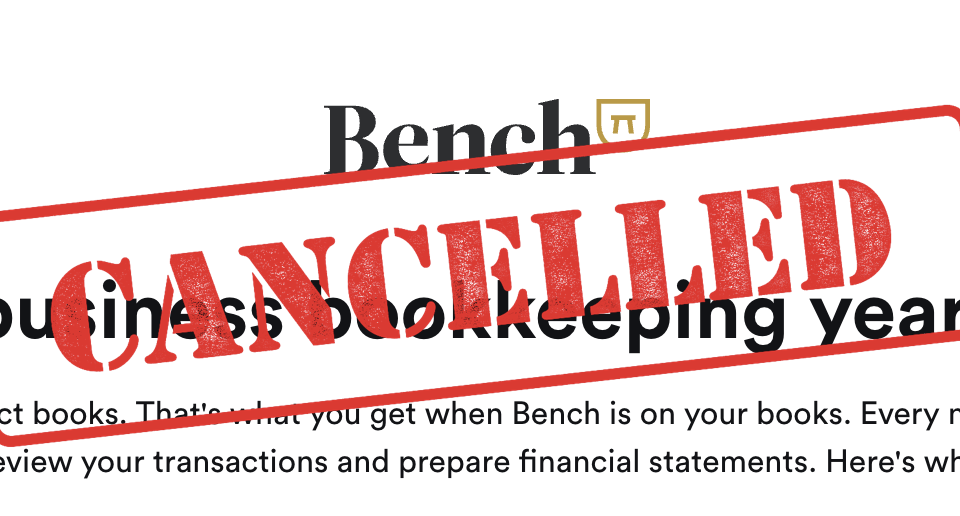The Fine Print of Our Contracts
March 7, 2014Expert Tips: How to Deal With the IRS
March 4, 2015A New Year’s Resolution for All Entrepreneurs: “2018 Will Be the Year I Get on Top of My Finances”
I always look forward to the start of a new year. It’s exciting to think of new possibilities and set new goals. It gives me new energy and enthusiasm for the year ahead. I usually have at least one resolution that looks something like this: “This year will be the year I finally get around to [insert something I have been procrastinating on for a long time].”
I know I’m not alone in this, because every single January, I get at least a few calls and emails from people who have resolved to finally deal with their backlog of undone bookkeeping and are asking for help. Some business owners begin panicking when they are only a few months behind in doing their books. However, I have worked with clients who had literally done no record-keeping whatsoever for six or more years.
If this sounds like you, don’t stress. No matter how far behind you are, 2018 can be the year that you finally catch up, get your taxes filed, and fix all those problems you’ve been avoiding.
I’d like to offer four practical suggestions for any entrepreneur who has made a New Year’s resolution to improve their business finances, catch up on undone bookkeeping, or deal with unresolved issues.
1. Define the Problem(s) and Prioritize
Procrastinators are sometimes so good at avoiding their issues that they don’t actually know what the real problems are. This is why it’s important to clarify and define. For example, if you haven’t done any bookkeeping for years, you actually have multiple problems. You must generate financial data somehow, file federal and state tax returns, and then pay the tax liability. Obviously, in a certain order, these problems can resolve.
Another consideration is that the legal, financial, and psychological ramifications of each problem vary. For example, you may owe taxes to both the IRS and your state, and both debts have financial consequences. However, the state can revoke your business license if taxes remain unpaid. In that instance, state taxes may take priority over IRS debts. In a separate example, perhaps a vital relationship is being jeopardized because you haven’t paid a debt on time, and for you, that takes precedence over any other debt.
Honestly identifying the problems and deciding where they fall in the order of priority is the first step towards successfully resolving them.
2. Get Help
I’ve noticed that many small business owners underestimate the amount of work it will take to resolve their particular problems. This often means they procrastinate because they figure they’ll have time later. But when “later” rolls around, they sit down to do the work and realize the trouble they’re in. I’ve also talked to people who vastly overestimated the amount of work it would take and ended up paralyzed because it scared them too much.
An outside perspective is always helpful. Most accountants and bookkeepers will assess your books for free, and just the process of getting a price quote can make the problem seem manageable again. Getting help may cost less than you realize, and the benefits may be much greater than you imagine. You won’t know until you ask.
If you are not good at bookkeeping, get help. When you don’t have time to do the bookkeeping, get help. If the idea of looking at the bookkeeping makes you panic, get help! I recommend you research at least two or three professionals, look at their backgrounds, and choose the one you feel most compatible with; don’t just choose the cheapest option.
3. Don’t Forget Current Bookkeeping and Obligations
This goes back to my first point about prioritizing. When you are behind, it’s easy to postpone current bookkeeping while you are catching up on past bookkeeping. This is a mistake! If you wait until last year’s books are done, you may never really catch up.
If you’re behind, January is a great time to get a fresh start. Do January right, and catch up with last year’s books when you can (or by getting outside help). As you’ll soon discover, it’s much easier to do your books when recent transactions are still fresh in your mind.
This principle applies to overdue taxes as well–a common problem. Every tax specialist or IRS agent I have ever talked to has emphasized how important it is to pay current obligations. They have even said that if you have to choose between making a payment towards an installment agreement or towards current liability, you should always choose the current liability. They don’t want you to get further behind! Current financial obligations and bookkeeping should be at or near the top of your priority list.
4. Get Organized
There must be a gazillion writers who have written about organization, so I won’t attempt to cover that topic. All I’ll say is that any system is better than none. (My sister arranges the books on her bookshelf by color, for goodness’ sake!). It really doesn’t matter whether you file by date or name, or whether you use hanging files, boxes, or bags, just as long as you begin feeling that you are getting things under control. If your office is a mess, find a student nearby who could use a few extra dollars, and ask for their help sorting through the piles, labeling boxes, etc. Just get started however you can.
Will 2018 be the year you get on top of your business finances? These suggestions will help make your resolution a reality. Now it’s up to you!
The original post that was written in 2015 was also featured at Intuit’s Small Business Help Center!
Find other helpful tips on how to set goals here.

